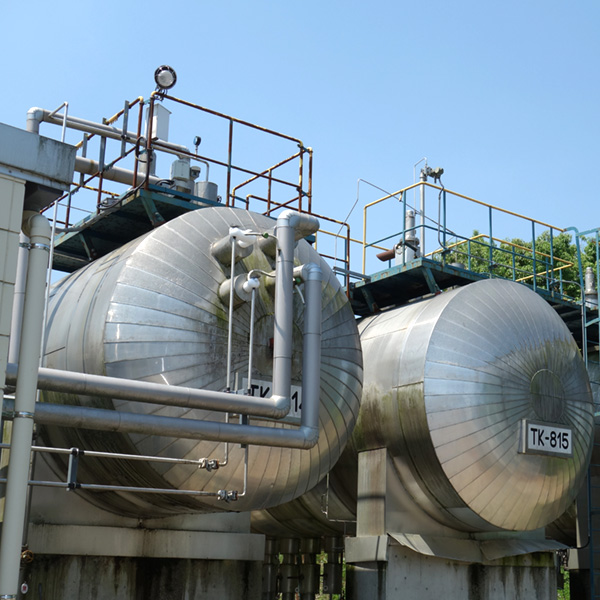
Sustainability
Sustainability
- HOME >
- Sustainability >
- Sustainability >
- Respect for Human Rights
Respect for Human Rights
Policy/Philosophy
In April 2019, our group formulated the Nissan Chemical Group Human Rights Policy (this "Policy") with advice of outside experts and approved at the Board of Directors meeting, in accordance with the principles on fundamental rights listed in the International Bill of Human Rights, the ILO Declaration on Fundamental Principles and Rights at Work and other international norms on human rights. This Policy covers all individuals and groups that may be affected through the business activities of our group.
Nissan Chemical Group Human Rights Policy
The Nissan Chemical Group supports international standards including the International Bill of Human Rights, the ILO Declaration on Fundamental Principles and Rights at Work, the United Nations Global Compact, the United Nations Guiding Principles on Business and Human Rights, and any other relevant standards for human rights. This Nissan Chemical Group Human Rights Policy (this "Policy") has been established to promote efforts aimed at respecting human rights of all relevant stakeholders including employees.
This Policy complements the Nissan Chemical Group’s position with respect to compliance and respect for human rights.
- 1)Scope of the application
This Policy shall apply to all officers and employees working for the Nissan Chemical Group. And the Nissan Chemical Group will also continuously encourage business partners and suppliers to support and respect this Policy. - 2)Respect for Human Rights
The Nissan Chemical Group shall respect the dignity and human rights of all people, and shall not discriminate, for whatever reasons, on the basis of, including, but not limited to, origin, nationality, race, ethnicity, beliefs, religion, gender, gender identity, sexual orientation, age, all kinds of disability, preference, academic background, pregnancy, language, economic background, and political views. - 3)No Infringement of Human Rights
All officers and employees of the Nissan Chemical Group shall not infringe upon the human rights of others or engage in discrimination, and endeavor not to participate, directly or indirectly, in infringement of human rights. - 4)Employment and Labor
<Prohibition of Forced Labor and Child Labor>
The Nissan Chemical Group shall prohibit any labor by forced labor, slave labor and/or trafficking. Moreover, it shall not impose unreasonable restrictions on the employees’ freedom of moving in and around the facilities provided by the Nissan Chemical Group. It also shall not impose unreasonable restrictions on the employees when they wish to leave their post or terminate their employment.
The Nissan Chemical Group shall not employ children under the legal working age stipulated in the law of the relevant countries or regions.
<Good Labor-Management Relations>
The Nissan Chemical Group promises to respect the freedom of association and the right to collective bargaining.
<Proper Working Hours>
The Nissan Chemical Group appropriately manages the labor hours, holidays and annual leave of employees so as not to exceed the working hours stipulated in the law of the relevant countries or regions.
< Fair and Equitable Remuneration>
The Nissan Chemical Group shall comply with any and all applicable laws and regulations regarding wages, including the laws on minimum wage, overtime work, and welfare benefits required by law, and shall pay fair and equitable remuneration that employees maintain a certain standard of living to employees.
<Elimination of Discrimination>
The Nissan Chemical Group shall endeavor to ensure equal employment opportunities in recruitment, job assignment, promotion and development of skills.
<Occupational Health and Safety>
The Nissan Chemical Group shall provide employees and anyone else who work on business premises of the Nissan Chemical Group with safe and hygienic working environment. - 5)Remediation
In the event that the Nissan Chemical Group causes or contributes to an adverse impact on human rights in the course of its business activities, it will provide remedy and make efforts to correct such impact through appropriate means.
Date of Establishment: April 1, 2019
Date of Revision: January 31, 2023
System
Our group has established the Sustainability Promotion Committee, whose secretariat office is Sustainability Promotion Group under Sustainability Promotion & IR Department, as an organization to promote the activities for human rights. The committee is held twice a year.
The long- and mid-term plan and annual plan related to activities for human rights issues, evaluation of results of activities, and issues to be improved and examined based on the evaluation etc. are approved at the Board of Directors meeting after discussion at the committee.
Activities
In our business operations, we believe that the health and safety of our employees and suppliers are important human rights issues. We conduct RC audits during Responsible Care management activities as a process to identify health and safety risks in the Company. RC audits are activities for checking RC activities at each plant, laboratory and affiliate. They are carried out by Environment, Safety & Quality Assurance Department in accordance with the RC audit guidelines. In these audits, the auditors check whether RC activities, as well as internal audits and patrols, are carried out appropriately and the PDCA cycle is implemented without fail. During RC audits, visible or potential problems related to health and safety are clarified, and improvement is promoted in response after clarifying the problems, if any. In FY2022, we implemented improvement and mitigation plans at 7 sites.
We ask our important raw materials, intermediates, and product suppliers as well manufacturing contractors to answer a questionnaire on Sustainability, which includes questions on topics such as consideration of human rights, labor, and the environment, health and safety, and ethics, to clarify risk. We also conduct on-site audits when necessary to check Sustainability activity initiatives in detail, with a particular focus on activities related to environment, health, and safety (EHS).
Educational Activity/Awareness-raising Activity
With the aim of spreading the concept of our human rights policy and promoting understanding of how to practice respect for human rights, we are conducting educational activities related to human rights. In FY2020, we conducted group-type training for the Directors and managers, and since FY2021, have been conducting e-learning on business and human rights, including the group’s human rights policy, for all employees. In FY2024, this e-learning was conducted for employees of Nissan Chemical Corporation, with 2,013 employees taking the course (98% participation rate). In FY2025, the program is scheduled to be implemented for our domestic group companies.
<Human Rights Training>
For Directors and managers
- Importance of human rights due diligence (conducted in FY2020)
For all employees (Implemented from FY2021)
- Nissan Chemical Group Human Rights Policy
- Elementary knowledge of business and human rights
Countermeasures against Harassment
Harassment related to pregnancy, childbirth, childcare leave, family care leave, etc. as well as sexual harassment and power harassment are subject to disciplinary action in our rule of employment. In addition, we post explanatory materials and consultation services on our intranet to enable employees to access and consult with us at any time.
<Training related to Harassment>
- Mandatory training was provided for all employees. (FY2023)
- Training was provided to all managers.(FY2021)
- We have introduced training for obtaining basic knowledge on harassment as part of the training before promotion to F4 class (positions equivalent to team leaders at plant).
(Started in 2013, about 20 employees attended per year.) - Line-care※ training includes training on line care when harassment occurs in the workplace.
- Care provided by manager / supervisor. It includes understanding and improving the work environment daily and providing consultations to subordinates.
Prohibition of Forced Labor and Child Labor
We prohibit child labor and all forced labor, including slave labor and human trafficking in our group’s human rights policy. In order to prevent the occurrence of child labor, we thoroughly check the age of employees when hiring. In addition, to prevent forced labor, the company does not store important documents, such as passports, that may restrict employees' freedom of movement.
Promotion of Appropriate Work Hours
We are carrying out various efforts aimed at reducing long working hours.
■Examples of specific initiatives
- Introduction of new system that enables timely monitoring and visualization of working hours and remaining annual leave.
- Introduction of No Overtime Day.
- Encouraging employees to take annual leave.
(We encourage employees to take at least 10 days of annual leave every year, including two days of company-wide planned leave and three days of individually planned leave, etc.) - Implementation of regular training for managers for managing working hours.
Human Rights Due Diligence
Our group is working to establish a system for human rights due diligence to identify and mitigate negative impacts of human rights. In FY2020, with the cooperation of outside experts, we identified and assessed risks that could have a negative impact on human rights through our business activities in major businesses and their value chains (risk mapping). We also exchanged opinions with stakeholders with the purpose of confirming consensus and differences in views on the results and incorporating the opinions of stakeholders. These opinions were reflected in the results of the evaluation, and we identified the risks which we need to prioritize for the Group.
<Evaluation process of human rights risk>
| Investigation of Human Rights Risk |
Based on the UNEP FI (United Nations Environment Programme Finance Initiative) Human rights Guidance Tool and other guidances on various human rights, as well as our existing internal information such as risk assessment, we investigated human rights risks that could arise in our business activities, and identified which stages of our value chain could occur and what impact they could have on anyone. |
|---|---|
| Human Rights Risk Assessment |
We assessed the "impacts on human rights" and "relations with the Group" for each identified risk. "Impacts on human rights" was assessed based on "impact (severity)" and "probability" based on the UN Guiding Principles on Business and Human Rights (UNGP). "Relations with the Group" was evaluated based on the concept of the "Arc of Human Rights Priorities" of the Danish Institute for Human Rights. |
| Dialogue with stakeholders including experts |
Based on the risk assessment results, we had dialogues with stakeholders including experts. In keeping with the opinions and advices, we conducted a reassessment of human rights risks and created the human rights risk map. |
| Identification of risks to be prioritized |
According to the human rights risk map, we identified risks which we need to prioritize. The result was discussed by the Sustainability Committee and resolved at the Board of Directors meeting. |
<Human rights metrics considered in risk assessment>
・Health and Safety ・Long working hours ・Wage and Welfare benefits
・Appropriate and fair labor conditions ・Disciplinary action
・Discrimination in workplace (Including providing equal opportunities for women and minorities)
・Inhumane treatment (Including harassment)
・Freedom association and rights to collective bargaining
・Freedom of speech and expression
・Leakage of personal information and invasion of privacy
・Customs of operating countries and regions
・Infringement of intellectual property rights
・Forced Labor (Including human trafficking)
・Child Labor (Including youth labor)
・Migrant laborers (Include foreign workers)
・Product safety (Including product misuse)
・Responsible marketing and freedom of information
・Human rights violations such as discrimination related to products and services (Including advertising)
・Use of natural resources (including water resources)
・Public safety (Provision of security by the state, etc.)
・Access to land (Including forced migration) ・Bribery and corruption
・Money laundering and transparency (including tax avoidance)
・Relations with countries where low awareness of human rights
・Conflict Minerals ・Relations with antisocial forces ・Access to Remedy
<Dialogues with Stakeholders>
| Stakeholders | Comments from Stakeholders (excerpt) |
|---|---|
| Ms. SATO Akiko ・Attorney at Kotonoha Comprehensive Law Office ・Deputy Secretary-General of Human Rights Now, a certified NPO ・Japanese Program Coordinator, Business & Human Rights Resource Centre, an international human rights NGO ・Coordinator at Rights Committee of the International Human Rights Committee and Civil Society Platform for Japan’s Nation Action Plan on Business and Human Rights of the Japan Federation of Bar Associations ・Steering Committee Member, Business and Human Rights Lawyers Network |
・In Japan, being required to work for long hours could be regarded as forced labor at the international level. I believe that the importance of this as a human rights risk should be raised. ・ In the midst of the spread of COVID-19 infections, measures to prevent infectious diseases in the workplace are becoming more important. The WHO and other organizations are also paying attention to health risks in new situations, such as increased mental health issues associated with remote work and work styles different from conventional ones. ・I believe that it is important to include "the right of stakeholders to have access to remedy" in the human rights risk agenda. It will also be important when considering responses to identified or potential human rights risks. |
| Mr. SEKI Masao ・Senior Advisor, CSR Office, Sompo Japan Insurance Inc. ・Specially Appointed Professor, School of Business Administration, Meiji University ・Chairman, Keidanren Task Force on Charter of Corporate Behavior ・Chairman, Keidanren Task Force on Business and Human Rights ・Chairman, Planning Department, Council for Better Corporate Citizenship |
・With regard to human rights, it is actually necessary to prioritize and tackle each issue individually. At first, however, I would like companies to always be aware of the importance of an overall understanding of international codes of conduct, such as the International Bill of Human Rights, and an understanding of what is expected of them. ・With regard to human rights risks at the newly established manufacturing base in India, it is necessary to look at human rights risks in each region within India. It is also advisable to collect information on human rights issues in each country by utilizing various means, such as international lawyers, international NGOs, and human rights organizations. ・Human rights due diligence is necessary to prevent risks from occurring in the first place, but I would also like to see more efforts made not only to prevent human rights violations but also to create a positive impact to realize human rights, in line with the SDGs principle of leaving no one behind. |
| Nissan Chemical Labor Union | ・The health and safety of the Group’s employees are something that we have been working on for some time which are of high importance. I would like to see further investment of management resources (people, money, and things) in order to spread these initiatives throughout the Group. ・In order to deal with long working hours that have become the norm in Japan, I would like the Company to set specific goals (such as examining and visualizing work duties) and systematically work on them. I believe that various studies will be necessary in the future in terms of the impact on health due to many years’ work and from the perspective of decent work, especially in three-shift workplaces. ・I believe that the level of vitality in the workplace is linked to business performance. Continuing efforts to create a comfortable working environment and a rewarding organization are important for reducing human rights risks. Through such activities, each employee should deepen his or her understanding of harassment and compliance in general, which will lead to the strengthening of the prevention system of them. To achieve this, it is necessary to involve not only the Corporate Planning Department and Personnel Department but also more departments to commit the entire group to addressing risks. I look forward to the proactive efforts aimed at employee training and other activities in the future. |
Affiliations and positions of experts are current as of the time of the opinion exchange (in the order of the Japanese syllabary)
<Risks to be prioritized>
Based on the risk assessment and the exchange of opinions with experts and stakeholders, the following issues have been identified as the Group's risks to be prioritized. In FY2021, we surveyed the status of efforts to address each risk through an in-house questionnaire.
In FY2023, with the cooperation of outside experts, we identified the current status and clarified issues related to our priority risks. We also exchanged opinions with external experts mainly on the clarified issues.
We plan to continue to strengthen measures with reflecting the opinions of stakeholders, and regularly review our human rights risk assessment and priority risks.
| Risks to be prioritized | Group could be affected | Major human rights risks | Status of Efforts |
|---|---|---|---|
| Access to Remedy | All stakeholders | Lack of appropriate action when human rights violations occur |
|
| Employee Health and Safety | Employees of the Group | Danger, harsh working environment (related to overall occupational health and safety, including mental illness), fire and explosion |
|
| Community Health and Safety | Local communities | Damage to local communities and health due to fires, explosions, chemical leaks and pesticide spraying |
|
| Product Safety | Customers | Sales of unsafe products, including misuse |
|
| Responsible Marketing | Customers | Interference with consumer choice due to lack of adequate product information, inadequate explanation of health risks, and inadequate response to unexpected product-related crises |
|
| Health and Safety in the Supply Chain | Suppliers | Danger, harsh working environment (related to overall occupational health and safety, including mental illness), fire and explosion |
|
| Child Labor in the Supply Chain | Suppliers | Labor of children under legal working age/under 15 years old, placement in hazardous work, harsh working environment |
|
| Conflict Minerals | Local communities | Procurement and use of raw materials containing conflict minerals |
|
- With regards to sustainability questionnaire and responsible minerals procurement, please refer to : https://www.nissanchem.co.jp/eng/csr_info/communication/supply.html
Consultation Hotline
We have Consultation Hotline to prevent violation of compliance, including respect for human rights and prohibition of discrimination, or resolve the problem early on.
The contact point for reporting shall be the Risk Management & Compliance Office, outside attorneys, or outside audit & supervisory board members, and the means for reporting may be selected by e-mail, mail, or telephone. Upon receipt of a report, the contents are reported to the audit & supervisory board members. The Board of Directors periodically receives reports from the Risk Management & Compliance Office on the status of the operation of the internal reporting system and supervises it.
Although it is possible to report anonymously, even if the name of the informant is indicated, we take care not to disadvantage the informant due to the use of the system.
Human Rights Due Diligence Workshop
Starting in the fiscal year 2024, our company has been participating in the Stakeholder Engagement Program hosted by the Caux Round Table Japan (CRT Japan). The purpose of this program is to deepen our understanding of situations where human rights issues arise, the relationship between business activities and human rights, key human rights issues, and the importance of conducting business activities with consideration for human rights. We aim to incorporate these insights into our efforts to respect human rights.
Through this program, we have discussed issues and solutions with NGOs/NPOs and experts, sharing perspectives from various fields to implement human rights due diligence as required by the "Guiding Principles on Business and Human Rights."





